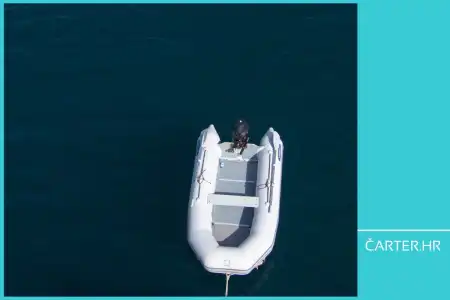
Did you know that backlink building is pivotal for enhancing your site's online presence? Learn how back links act and the difference between good and harmful links. Read on to learn how to improve your website's SEO and strengthen its standing in the digital world.
Search Engine Optimisation (SEO) for your website may seem like a labyrinth of all sorts of things. And it is.
But rest assured, if you do it properly (and with the right goal in mind), all is easier.
In SEO, there are many things that you have to know and do them in the right way. One of them is link building.
But what is link building, exactly? It's the process of acquiring hyperlinks from other websites to your own. A hyperlink (usually just called a link) is a way for users to navigate between pages on the internet.
Why link building is crucial for your website's SEO success
Why is link building indispensable for SEO success? Think of links as the internet's digital currency; their abundance enriches your site's SEO value.
They are the foundation of the grand mechanism of search engine algorithms, particularly Google's.
Each link acts like a vote of confidence from one site to another, signalling that your content holds value, authority, and relevance to the vast digital world. High-quality links draw search engines to deem your site as credible and important.
In SEO, where visibility (and content) is king, link building is not just a strategy; it's an ongoing "conversation" between your site and the rest of the digital world. A conversation that determines your place in an interconnected web of information.

Link quality - differentiating between good and bad ones
Not all links are created equal.
In SEO (Search Engine Optimisation), getting into the difference between good and bad links is not too trying. Especially if you do it properly...
Good links are like getting an excellent recommendation in a busy digital market, showing that your content is trustworthy and high-quality.
Bad links, however, can be tricky and misleading, as they can come from sketchy or unrelated websites and can lead your website into trouble with search engines like Google.
Understanding these two kinds of links is really important. It's not just about improving your website; it's about making your online presence strong and respected.
Good links - Come from reputable and relevant websites nad they act like a positive endorsement, improving your website's reputation.
Examples:
- A link from a well-known blog in the industry to your business website.
- A link from a respected news site to your informative article.
- A link from an educational institution to your research page.
Bad links - come from dubious or irrelevant websites nad they can harm your website's standing with search engines, leading to penalties.
Examples:
- A link from a spammy, low-quality website to your site.
- A paid link from an unrelated site just for the sake of linking.
- A link from a site with illegal or unethical content to your webpage.

Link building plan and link building techniques
For a good link building plan, you need to get into the minds of your audience, find out where they spend their time online, and what kind of content grabs their attention. This step helps you find the best places to build links that appeal to the people you want to reach.
Creating a personalised link building plan has to be tailored to fit your goals and the your specific audience. This shouldn't be a one-size-fits-all approach but a custom-made strategy.
Guest posting opportunities
With guest posting, you can share your ideas and expertise on someone else's platform. It's a win-win situation. You provide valuable content to a new audience, establishing yourself as an expert in your field. In return, you get high-quality backlinks from the host's website. This helps your website's SEO and broadens your online presence.
Collaborative projects – webinars and online workshops
Team up with other websites or businesses for a project, like co-creating a webinar or an online workshop. This collaboration is a fantastic way to get your name and website out there. As you work together, you naturally link to each other's sites, which helps improve your SEO.
Creating shareable infographics
Infographics are easy for your audience to understand and share. Creating visually appealing and informative infographics related to your niche encourages other websites to share your content. Each time they do, you get a backlink to your site. It's a creative and effective way to catch the attention of both your audience and other websites.
Each of these techniques is about more than just building links; they're about making meaningful connections and sharing valuable content, which, in turn, helps boost your website's visibility and credibility.

Creating share-worthy content that naturally attracts backlinks
The secret to attracting links naturally lies in crafting content that's informative, irresistibly engaging, and visually appealing. These are the things whose goal is to create content that resonates with your audience:
- In-depth how-to guides
- Insightful case studies
- Interactive quizzes or polls
- Comprehensive industry reports
- Social media channels
Your content should provide value and ignite curiosity and engagement, prompting readers to share it across their networks. As your content garners attention and shares, it naturally attracts links, acting as a magnet for SEO value.
Social media channels are great way for boosting your link-building efforts. These platforms are a vast stage you can use to promote your content, engage with your audience, and build a community around your brand.
By sharing your content on social media, you not only increase its visibility but also encourage link-sharing among your followers. This strategy turns each post into an opportunity to attract links and enhance your website's SEO.
Measuring and analysing your link building success
In link building, tracking your progress is crucial. Utilise tools like Google Analytics, Ahrefs, or SEMrush to monitor the links you've garnered.
These tools offer insights into how these links affect your website's traffic and search engine rankings, so you can measure the effectiveness of your link-building strategies and make informed decisions.
Data analysis is vital to fine-tuning your link-building. With analytics, you can discern which tactics are doing good and which aren't.
Ongoing analysis allows you to adapt your strategy, focusing on the most impactful techniques. It's all about being responsive to the data and continuously optimising your approach for maximum effectiveness.
You also need to adapt to changing SEO trends and algorithms. The SEO "rules" are constantly shifting, with new trends and algorithm updates emerging regularly - stay informed and adaptable.

Do's and don'ts of link building
Knowing the do's and don'ts of link building is essential - you must understand and adhere to best practices.
Avoid shortcuts, such as purchasing links or resorting to black-hat SEO techniques. They might offer a quick solution but can lead to severe penalties, making all your efforts null and void.
If you are rejected in your offer for link building, it is the natural flow of the digital marketing strategies. Rather than being disheartened, view these experiences as opportunities to refine your outreach strategy. Each rejection provides insight, helping you to hone your approach and try more effectively in the future.
Make sure you follow Google Search Essentials (formerly Google's Webmaster Guidelines). Use these guidelines as your map, showing you the safe routes to follow. Familiarise yourself with these rules so your link-building efforts remain within Google's approval.
Advanced SEO link building techniques
To ensure the longevity of your efforts, focus on continuously creating high-quality content that organically attracts links. This approach will keep your website resilient in the face of change.
After you have mastered the basics of link building, you can get into more sophisticated techniques., such as:
Broken link correction: Identify and replace broken links on your own ad other websites with relevant content.
Skyscraper technique: Find popular content in your niche, create something better, and reach out to websites linking to the original content.
Unlinked brand mentions: Search for mentions of your brand that aren't linked to your website and request the site owner to add a link.
Resource page link building: Target websites that have resource pages and suggest adding your relevant content as a resource.
Competitor backlink analysis: Analyse your competitors' backlink profiles, identify quality links, and approach the same sources for linking to your content.
Incorporating link building into a broader SEO should not be an isolated endeavour but rather an integral part of your strategy. This integration involves unified link building with on-page optimisation, content marketing, and technical SEO.
Link building efforts are essential for sustained website growth. This involves constructing a diverse links, each adding a unique value. Continuously creating high-quality content is your website's core, attracting links organically like a magnet.
This approach fortifies your current position and prepares you for what's to come, ensuring that your website remains resilient and ever-growing in the dynamic world of SEO.
Categories of trends
- News
- Sale
- Marketing
- SEO
- Web design
- Social media
- Technology
- Regulations
- Management
- Education
- Finances
- User experience
Newsletter
Sign up for the newsletter and receive the latest trends and tips straight to your inbox



